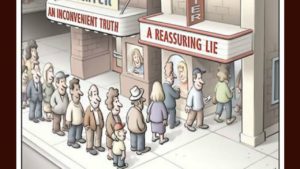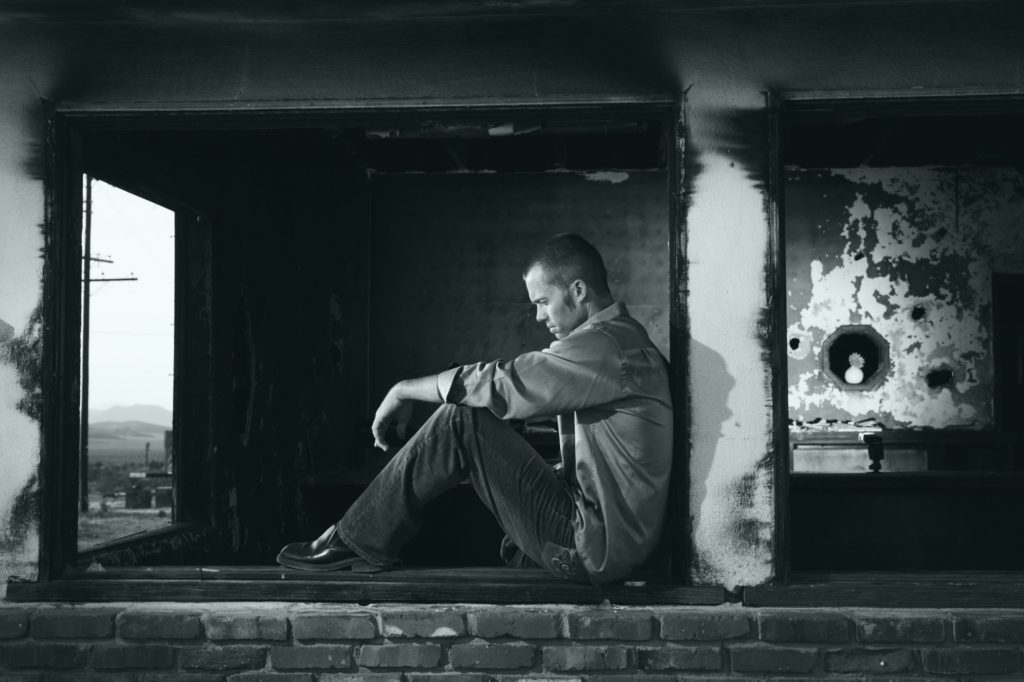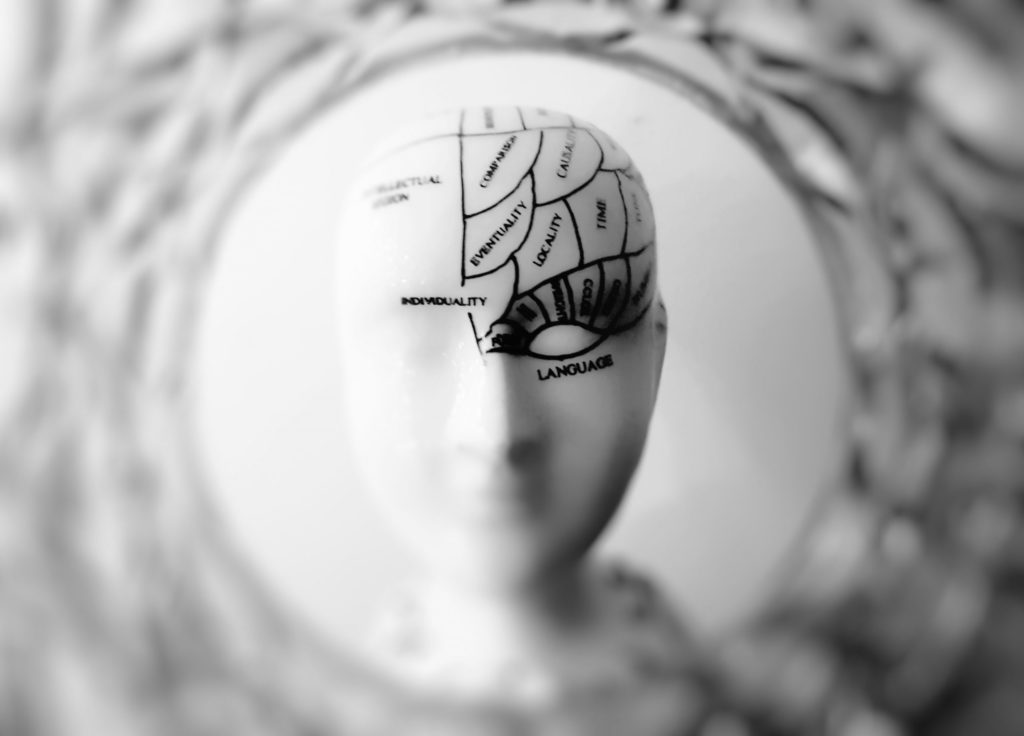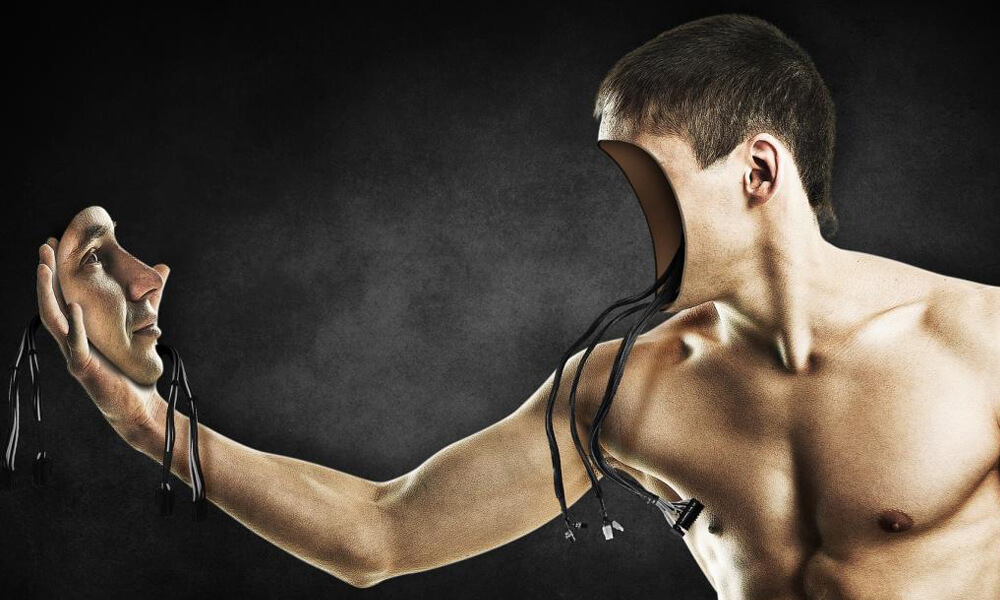I have clients who don’t recover from their porn addiction.
That’s the reality.
6 years of recovery mentoring and a few hundred clients in, I’ve seen men in their mid to late twenties who choose to keep on watching porn enter their thirties and totally f**k their lives up.
While, as a professional, my clients do have the highest porn addiction recovery rate out of all the options out there, I still fret and stay up late trying to figure out how and why some clients don’t recover. Not everyone can be saved and this frustrates the hell out of me sometimes.
Not to sound all “zen” and deep- but today, during my morning meditation, I figured out a few reasons why. (this also means that my meditation session sucked, lol)
Don’t get me wrong, though. This process took about 5 years and today was the day I experienced my “revelation”.
The first thing to understand is that YOUR BRAIN DOES NOT WANT TO CHANGE.
The older you get, the tougher it is to recover. If you are over the age of 26, your brain has made enough sense of life and society that it doesn’t really need to change that much. You’ve created mental models for most things in life and complacency sets in. The human brain naturally resists rewiring of any sorts and prefers comfort and familiarity.
This process is called homeostasis.
This is one reason why recovery from porn addiction is not as easy as “staying away from porn for 90 Days”.
There are MANY things that our brain doesn’t want to change- not just watching porn and masturbating to it. I’ve compiled them into three main things which I call the three enemies of recovery.


Enemy #1: Confirmation Bias
Confirmation bias is the way your brain goes through information and discards anything which doesn’t fit the way you see the world. Remember- the brain resists change. Confirmation bias keeps us comfortable and prevents us from rewiring our brains neural pathways.
You can see confirmation bias demonstrated online where different people have polar opposite reactions to a video or article.
Another example is religion or some sort of ideology. Your ideology comes from two things: your beliefs and emotions.
Your beliefs are formed from a neural pathway in your brain being used over and over again- for years. Your emotions are neuro-chemical reactions. When combined, you get an ideology- like a religious conviction, political belief, radical feminism, socialism, radical veganism (this is apparently a thing), and so on.
The problem is that confirmation bias makes it difficult to analyze anything which is different from your belief or emotions. This is why many men cannot accept the fact that they are “porn addicts”. Your idea of an addict is not linked to pornography. Your beliefs about quitting porn hold you back.
Here’s an example you can probably relate to:
When you are experiencing a streak of not watching porn and masturbation, you begin to believe and tell yourself that “I’ve got this under control”- then you start getting sloppy with the things that kept your off porn in the first place and next thing you know, you are relapsing to something like a very light sex scene in a movie.
This happens OVER and OVER again…but you never change. You never change and keep thinking you have it under control because you haven’t changed your belief to something more realistic such as: “I don’t have this under control until my brain rewires itself AND it takes more than a few months to recover from porn addiction.”

Enemy #2: Technology
Many men- especially millennial men, use technology irresponsibly and there is a price to pay for that. The cost is damage to their ability to synthesize information and to think independently.
My research into my clients revealed a few things:
The more you watch T.V, the less likely you are to recover from your porn addiction. Men who watch T.V, Netflix, and Youtube as entertainment for more than 10 hours a week have a HIGH relapse rate.
Men who are most likely to relapse consume information via technology without discipline. They look up anything they don’t know on their phones before thinking for themselves. They would rather watch a video than read a book about recovery.
See, the majority of modern humans cannot deal with boredom or lack of satisfaction in their lives simply because every time they feel bored, they tune into T.V, Social Media or….porn.
We have not trained ourselves to sit and think in silence. As a result, many men cannot sit still and evaluate their emotional state- a necessary step in recovery.
They don’t THINK enough and as a result are not only prone to relapse but are prone to being unfulfilled and unsuccessful.
In our current world, success is not determined by how much manual labor you can do, or how hard you can work. It’s predicted by your ability to think and be creative.
 Enemy #3: Lazy Thinking and Beliefs
Enemy #3: Lazy Thinking and Beliefs
Lazy Beliefs are basically beliefs which you formed to make life easier for you and make you feel better when you don’t achieve your goal.
Easy thinking makes you soft and fragile because it often puts the responsibility of your situation on someone else.
Here are a few examples:
a) “This time will be different because____________ will happen!”
This is the belief that something positive will happen in the future that will change your life without any effort on your part. For instance:
“I’ll stop watching porn and masturbating when I have sex /get a girlfriend/to get married to the right woman .”
“I’ll become more attractive/ stop being stressed when I get a good job/ become very successful ___years from now.”
“I won’t slip or relapse this time because I got a therapist/ recovery coach/ joined a group.”
b)”I’m ___________ therefore ____event probably won’t happen to me.”
This happens when you believe you are exempt from something happening to you because you are “special”.
Let’s start with my favorite:
“I watched 70 videos about not fapping on Youtube and I am a Level 5 Black Belt with 500 Days of not fapping. so I’m going to recover for sure!”
Reality: You can remain in the early stages of recovery from porn addiction with no relapses for months and even YEARS only to relapse 2 years later because you still haven’t rewired your brain or dealt with the underlying issues that made you addicted to porn in the first place.
The ugly truth is that many men who claim to have recovered from porn addiction have not. They simply regressed to a stage of their addiction where they can go months without watching porn or masturbating- but they eventually slip and binge for a few days, then get back on the horse. This pattern will likely continue throughout their lives.
“I’m a strong Christian/Religious person- my faith and belief in Jesus Christ/ religious deity will pull me through”
Reality: God helps those who help themselves. Faith is an amazing thing to have in your arsenal against addiction, but Faith without a realistic goal, faith without doing the necessary recovery work, heck, even faith without a filter installed on your devices will NOT work.
” I won’t be unemployed and lonely in my thirties because I’m in college now and I have some friends.”
(Actual quote by a twenty-something-year-old porn addict who is an “introvert”, has no close friends, is failing his sophomore year in college and is broke because of his severe addiction to live cam sites).
Reality: As I mentioned earlier, I have followed the lives of dozens of my clients over the years. If you don’t fix your porn addiction and any other unhealthy behaviors in your twenties, it only gets tougher as you get older.
It is heartbreaking to speak to men in their 40’s who literally watched all their dreams slip away because of their effects of pornography on their lives:lack of focus, complacency with their career, lack of friends and an encouraging network, never attaining any form of financial independence, never being in a fulfilling long term relationship, or choosing porn over their one relationship.
“I can’t wake up early because I need at least 9 hours of sleep to function”
Reality: Sleep is important, so sleep as much as you need, but if you consistently go to bed at 2 am because you’re up watching Youtube videos, catching up on TV series, edging to porn or juggling 5 dead-end conversations on Tinder, you are only fooling yourself. Try going to bed at 9:30 PM if you can and see how many hours you really need. Some of you will literally solve 90% of your problems by being in bed by 10 PM every night.
“I would be more successful/ have more money if not for the____(blame someone else) who keeps me down!”
Reality: Who is the scapegoat in your life? Your parents? Your wife or girlfriend? Trump? The porn industry? Take 100% responsibility for your life.
Here’s what I mean by 100% responsibility: If my car gets rear-ended while I’m rushing to an important meeting and I am late as a result, its MY responsibility, not the idiot behind me who was texting and driving. If I wasn’t rushing and had left 30 minutes earlier, I would not be the victim in the accident.
If I am in a bar with friends and some drunk pick a fight with me and I get knocked out, it’s 100% MY RESPONSIBILITY because I could have
1) Not reacting in a way that resulted in a fight
2) Not been as easy to knock out (taken my martial arts training more seriously)
3) Not been drinking in a bar
One last one since I’m on a roll (this will probably lose me some subscribers- but whatever): if you are in a relationship and your girl cheats on you, its 100% YOUR RESPONSIBILITY.
1) There were probably warning signs that she was not long term material, but you ignored them because “she was the One”.
2) You got comfortable in your relationship and didn’t give her what she needed, so another guy swooped in.
3) Your relationship game wasn’t great/you weren’t experienced enough and some other guy who was better suited to her seduced her. In which case, she wasn’t long term material in the first place and most likely not the right woman for you.
The point is- take full responsibility for your life and trust me- you’ll be a much happier man.
There you have it- the three enemies of recovery.
It is my hope that bringing these to your awareness will prevent you from falling into this trap.
Your brother in this struggle,
J.K














 Enemy #3: Lazy Thinking and Beliefs
Enemy #3: Lazy Thinking and Beliefs